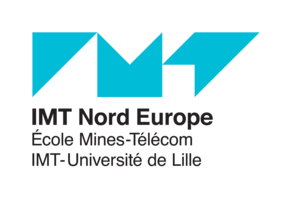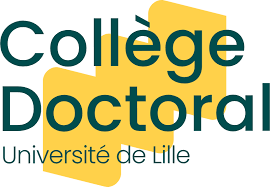Your Future Career as a Doctor
![[Translate to English:] Dessin - Illustration - Comment faire ? [Translate to English:] Dessin - Illustration - Comment faire ?](/fileadmin/user_upload/edsmre/Images/photos_labos/comment_faire.jpg)
Freshly graduated doctors are no longer solely focused on pursuing an academic career as their ultimate goal. Doctoral students are required to present a career plan outside the academic sector in addition to their thesis preparation. The sooner a researcher prepares for post-thesis life, the sooner they can find a suitable position
MyDocPro: the tool for skills assessment
Doctors are at the cutting edge of their scientific speciality
They are also all-round professionals, far beyond their field of expertise
DocPro presents the 24 key skills they develop over the course of their doctorate and their career
PhDOOC: The PhDOOC association offers the MOOC "PhD and Career Development," which includes all the tools you need to find a job that will add value to your profile. Click here to learn more about the MOOC.
What Should you do to Prepare for the Aftermath of Your Thesis?
- Use the skills you have acquired by completing the professional training courses offered by the Doctoral College
- Browse as many job offers as possible in different fields and select those that interest you
- Identify companies, organisations, and services by consulting their websites, participating in career fairs, and deciphering career paths on social media
- Connect with fellow researchers, career experts, and members of your network
- Consider your skills/activities to identify those you would like to pursue in your future job
- Analyse the job market and its prospects, take an international outlook
- Reflect on your values, interests, and any potential obstacles to gain a better understanding of your perspective
- Develop an action plan to structure or evaluate your job search
- Create a thorough profile on professional networking portals such as LinkedIn and ResearchGate and increase your visibility by sharing relevant information
- Get (and stay) in touch with people in your professional and personal network: colleagues, acquaintances, people you meet at seminars, conferences, congresses, thesis defences, training courses, leisure activities, etc. This will be beneficial throughout your career
- Talking to someone in the position you are looking for allows you to ask all sorts of questions, even the most sensitive ones (e.g., salary, working conditions and atmosphere, recruitment process, etc.)
- Consider getting involved in activities such as organising events (seminars, conferences, meetings, etc.), participating in grant applications and being elected to councils within your university, doctoral school, student association, or lab to develop or refine certain skills
- Develop your experience abroad
Step-by-Step Guide to Prepare for the Aftermath of Your Thesis
- Take note of the skills you've acquired through your academic degrees
- Plan out the scientific, international and cross-disciplinary skills training to be acquired as part of your Individual Training Agreement
- Regularly attend the multiple professional training courses offered by the Doctoral College
- Set up job alerts to monitor the job market
- Draw up hypothetical scenarios about your possible career path
- Choose some professional networking portals, such as LinkedIn, and create a detailed profile.
- Complete and update your skills portfolio.
- Keep monitoring the job market: Analyse and confront the trends you notice to confirm or refute your hypothetical career paths.
- When attending conferences, cultivate your network by inviting fellow researchers to connect with you.
- Develop your recruitment tools, such as CVs, cover letters, oral pitches, publications, etc.
- Position yourself in relation to the job market, your aspirations, and so on
- List the companies that might be relevant to your project
- Keep working on your network
- Establish any additional training needed to achieve career goals such as learning foreign languages, quality assurance, or developing business skills
- Announce your availability and career plan: This may include your professional profile, CV, physical network, and other relevant information
- Activate your network to gain access to specific market offers
- Manage your job applications and prepare a draft of your career plan
- Go to job interviews
Surveys and Press Releases

ODIF Survey:
- Focus: Newcoming Doctoral Candidates at the University of Lille, the Centrale Lille and the IMT Nord Europe in Years 2021-2022 (in French, PDF, 169 kB)
- Report: Newcoming Doctoral Candidates at the University of Lille, the Centrale Lille and the IMT Nord Europe in Years 2021-2022 (in French, PDF, 1.1 MB)
Survey Ministry of Higher Education and Research
- 2023 Report from the Ministry of Higher Education and Research on the State of Scientific Employment in France
- Doctorates and doctors
- The future of PhDs 3 years after obtaining their thesis
RNCD Survey: Pursuing a Doctorate in France - Perspectives on Doctoral Training: A survey on doctoral candidates enrolled in 2021 and their supervisors carried out by the French Network of Doctoral Colleges (RNCD) in French doctoral schools
- RNCD Survey Press Release: On 1 January 2022, the RNCD Published a Major Survey on Doctoral Programmes in France. In 2021, more than 11,000 doctoral candidates who are enrolled in doctoral programmes, as well as 5,800 supervisors shared their opinions on the doctorate and doctoral supervision.
- ODIF Survey Page
- The Future of Doctors Three Years After Graduation: Three years after obtaining their degree in 2014, 91% of doctors were employed. Half of doctors work in the academic sector, 2 out of 3 have a permanent job, and more than 9 out of 10 work on an executive level.
- Out of all the doctors employed 3 years after graduation, how many have found a permanent contract and in what sector? For the 9 out of 10 doctors employed within 3 years, 4 in 5 secured a full-time managerial position. But to what extent do these employed doctors still work on post-doc projects or, more generally, on fixed-term contracts three years after obtaining their degree? (Dispatch n°632453 AEF - By S. CHAOUKI, published on 27/07/2020 at 5:02 pm and modified on 06/10/2020 at 4:05 pm)
- The Situation of Doctors on the Job Market: In France, 200,000 Doctorate Degree Holders Are in the 25-64 Age Group. This predominantly male population has a much more privileged social profile than the general population
- In 2021, the Réseau national des collèges doctoraux (RNCD) (National Network of Doctoral Colleges) conducted a major field survey, comparing the views of doctoral students and supervisors on doctoral training practices in France today. Following the RNCD meeting on 7 March 2022, which presented the results of the survey, please find the link to the presentation boards and the survey results document.





